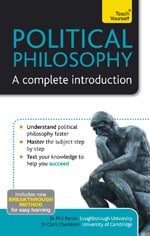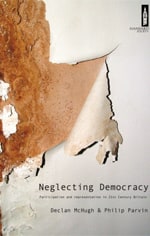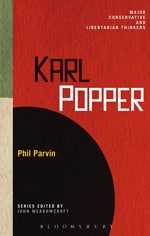Phil is a Reader in Politics. He is an elected member of the Executive Committee of the Britain and Ireland Association for Political Thought, an Associate Editor of Res Publica, and former Director of Loughborough’s Centre for the Study of International Governance, and Ethics in Public Life research group.
He is a political theorist who has written on a range of topics. Most recently, he has worked on the challenges to democratic theory and practice posed by widespread declines in political participation, participatory inequality, and political lobbying. His work on lobbying has been influential among policy makers as well as professional lobbyists, and has been covered by many major media outlets, including Bloomberg, The Guardian, Le Monde, and Politics.co.uk. In addition to his academic publications, he also writes for a wider audience on websites such as The Conversation, Democratic Audit, and the Political Studies Association.
He has a BA from the University of Kent, an MA from the University of York, and a PhD from the London School of Economics. Before coming to Loughborough he was a Leverhulme Early Career Fellow in the Department of Politics and International Studies, Cambridge University, and a Fellow of Trinity Hall, Cambridge. He has also taught at Queen Mary University of London, and the London School of Economics. He has twice been a Visiting Scholar at the University of California, Berkeley (2009 and 2013). In 2018 he was Visiting Senior Research Fellow at Balliol College, Oxford, and Visiting Research Fellow at the Centre for the Study of Social Justice, Oxford. During the summer of 2018 he was also Visiting Researcher at Nuffield College, Oxford. He held a Leverhulme Research Fellowship during the academic year 2012-2013.
In addition to his academic posts, he was also a Director at the Hansard Society, and a Research Associate for the think tank Catalyst.
Phil is on research leave for the 2024/25 academic year, during which he will hold the positions of Visiting Scholar at the Department of Politics & International Studies, University of Cambridge, and Visiting Professor, Corpus Christi College, Cambridge.
Phil’s specialist field is political theory, although he also publishes in the fields of democratic theory, British politics, and public policy. He is especially interested in the way political theory and political practice interact.
His current research tackles the challenges posed to democratic theory and practice by changing patterns of civic and political participation, and the role of unelected lobby groups. He is currently writing a book entitled Democracy Captured: Lobbying, Power, and Politics on these themes, in which he analyses the role of lobby groups in democratic societies, and traces the connections between citizen disengagement, political inequality, and the role of money in politics. His work on lobbying has been widely influential among lobbyists and policy makers, and has influenced changes in regulation and law around lobbying.
He has written two other books. His first, on the political thought of Karl Popper, was published in hardback by Continuum Press in 2010, and then in paperback by Bloomsbury in 2013. A Korean translation of the book was published in 2014. The book explores the influence of Popper's work on liberal and conservative political thought, and locates his work within contemporary debates in Anglo-American political philosophy and social thought.
His second book, co-written with Clare Chambers, is Political Philosophy: A Complete Introduction, published by Hodder in 2012. It is a text book aimed at providing undergraduate and graduate students new to political philosophy with a foundation in the major debates which have shaped the discipline. This book has recently been translated into Persian.
He has also written nearly 30 articles for peer-reviewed journals and edited volumes on a range of topics, including social justice, markets, multiculturalism, and migration, as well as nearly 40 essays, review essays, policy reports, and online pieces for policy makers and political practitioners.
Phil is on leave for the 2024/25 academic year and so is not teaching this year. However, his main teaching specialism is in contemporary political philosophy, the history of political thought, and political ideologies. He convenes and teaches on modules across IRPH programmes including Politics, International Relations, and PPE.
- Parvin, P. (2022) ‘Hidden in plain sight: How unelected organisations undermine democracy’ in M. Bennett, H. Brouwer, and R. Claassen (eds) Wealth and Power: Philosophical Perspectives (Routledge). https://bit.ly/4fM3ukf
- Parvin, P. (2022) ‘The ethics of political lobbying: Power, influence, and democratic decline’, in E. Hall & A. Sabl (eds) Political Ethics: The State of the Discipline (Princeton University Press). Accepted for publication.
- Parvin, P. (2021) ‘The participatory paradox: The impossibility of participatory democracy and the need for better representation’, Representation. Published online: https://bit.ly/33LDgv3.
- Parvin, P. (2019) ‘When the people are not reasonable: Multiculturalism and realistic normative theory in the contemporary era’, Ethnicities. Published online: https://bit.ly/3eLynbB
- Parvin, P. (2018) ‘Representing the people: British democracy in an age of political ignorance’, Political Studies Review. Published online: http://bit.ly/2pgkBCQ.
- Parvin, P. (2018) ‘Democracy without participation: A new politics for a disengaged era’, Res Publica. Published online: http://bit.ly/2j5rZ1q.
- Parvin, P. (2015) ‘Is deliberative democracy feasible? Political disengagement and trust in liberal democratic states’, The Monist, 98/4. Published online: http://bit.ly/2F8j3Ba.

Political Philosophy: A complete introduction
The book is designed to give you everything you need to succeed, all in one place. It covers the key areas that students are expected to be confident in, outlining the basics in clear jargon-free English, and then providing added-value features like summaries of key thinkers, and even lists of questions you might be asked in your seminar or exam.
(Hodder, 2012)
Phil Parvin and Clare Chambers

Neglecting Democracy
Participation & Representation in 21st Century Britain, 2nd Edition
2006, Hansard Society
Phil Parvin and D. McHugh.
Download the Neglecting Democracy pdf


